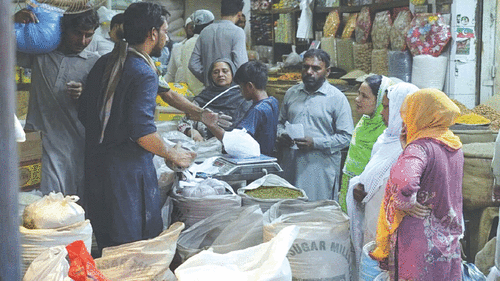WHILE it may be a bit early to say this, however, by analysing the striking variation in mortality rates in comparison with countries in the Northern hemisphere, there is some hope that the pandemic will not follow as lethal a trend in countries located proximate to the equator such as Pakistan, India and Bangladesh.
Africans and South Asians have better immunity due to infections like Ebola, Dengue, Typhoid, Chicken Pox, Malaria etc. Past exposure to microbial load and various pathogens like parasites, bacteria and viruses have generated improved immunity due to broad specific memory T-cells and boosted its readiness to attack new foreign invaders.
According to the latest clinical Covid-19 studies, recovery depends on T-cell rapid response while the infection progresses. Extensive past use of chloroquine and hydroxychloroquine drugs at the community level seems to be playing a favourable and beneficial role in controlling the mortality rate. This supports the ongoing debate and research on the positive role of chloroquine and hydroxychloroquine in treating Covid-19 patients.
Pakistan is less at risk owing to a younger population as compared to Spain, Italy, China and the US since our immune systems degrade as we age. It’s the same reason that we see increased cancer rates as we grow older — our immune systems, which normally find and destroy cancers in our bodies, become overwhelmed, exhausted and depleted.
Studies have shown a seasonal pattern in other coronaviruses, with peaks occurring during winter and disappearing in spring. By contrast, only a small amount of coronavirus appears to be transmitted in summer.
Africans and South Asians are more resilient due to past exposure to microbial load and various pathogens like parasites, bacteria and viruses
The Pakistan health system is, of course, neither better nor more developed than its European or American counterparts. But from the perils of our existing health system emerge the strengths required to battle the existing pandemic. Our health system and health care providers are proving more resilient in coping with the pandemic due to the following factors:-
a) Pakistan does not have strict protocols like the West therefore healthcare providers enjoy flexibility when dealing with patients. In a sense, emergencies are a norm for our healthcare staff, hence they are better equipped to apply their knowledge and expertise during this pandemic.
b) Healthcare workers are adept at dealing with a lot of patients. For example, more than 150 outpatients or more than 10 emergencies per physician/surgeon is not abnormal in our teaching and territory health units. However, for a physician or a surgeon in the US, this is a week’s or a month’s workload, respectively.
c) Various provincial governments, (Sindh, Khyber Pakhtunkhwa and Punjab) have announced thousands of doctors will be inducted. It’s not possible in countries like the US to ramp up vital human resources on such short notice; it would take them years to arrange and hire so many doctors.
The mortality rate of Covid-19 is comparable with other diseases/infections such as diarrhoea in children, seasonal flu, smoking etc. Most importantly, bankruptcy due to lockdown will kill more than the coronavirus.
Pakistan’s approach to extending the lockdown beyond April 15, mainly based on the Chinese model, does not seem feasible and is counterproductive. Instead of locking down 95 per cent of the population, it would be more efficient and effective to go the other way. For optimal results, during the lockdown, we need to scale up testing tenfold from the current levels, and rigorously implement the mantra — test-isolate-treat-trace the vulnerable among the 5pc high-risk population.
This will be much cheaper than what Pakistan is paying in terms of economic and social costs. The lockdown itself has limited value. Even if all 220 million of us stayed home for the next 30 days, the virus will be down, but not out. In the long run, it is not the lockdown that is going to save us but natural herd immunity.
In this regard, antibody tests are important and can be started immediately to track individuals and herd immunity level for Covid-19, particularly in highly-affected areas, high-risk population and health workers. Instead of testing for current signs of infection, these tests detect antibodies and identify those who have had Covid-19 and may now be immune.
In the short term, this will be important because it will permit authorities to identify who may return to their jobs without risk of infecting others. That is especially valuable in the cases of doctors, nurses and the numerous other health-care workers needed to look after those who are seriously ill.
And in the long run, antibody tests will reveal how far the virus has spread through the population and thus whether or not herd immunity is likely to have built up. It is efficient, cost-effective and can be easily performed in most of the pathology laboratories, while RT-PCR coronavirus test is expensive, time-consuming and needs a special instrument, which many labs do not have.
Published in Dawn, The Business and Finance Weekly, May 11th , 2020












































Dear visitor, the comments section is undergoing an overhaul and will return soon.